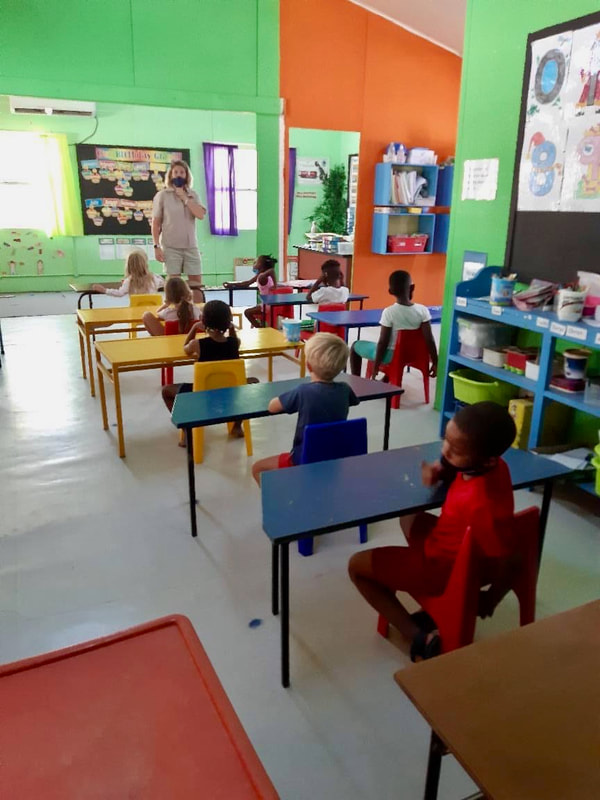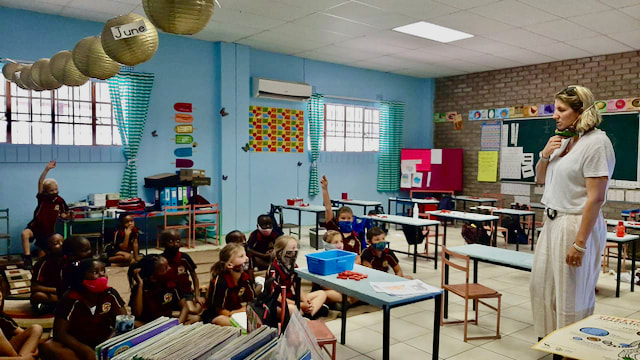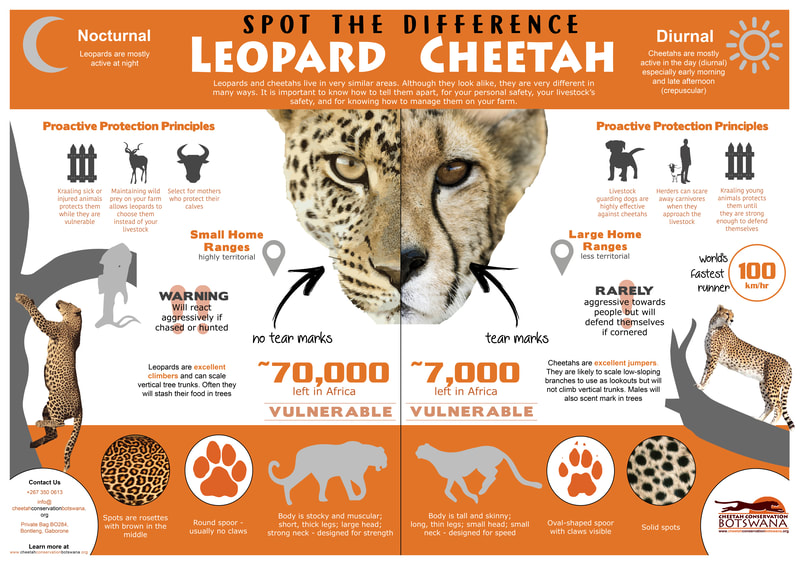Speaking with children from Pioneer Academy in Ghanzi is always a particularly illuminating experience — as their farming community suffers greatly from human-wildlife conflict and these children have often been directly exposed to confrontations between large carnivores and farmers. On this particular visit, we heard many stories of farmers trapping cheetahs and leopards in cages before moving them off the farms in what we refer to as “translocation”. This allowed our team to discuss the pros and cons of this approach with students and help them to understand the value of protecting livestock from carnivores so that livestock are protected from all carnivores. We discussed livestock guarding dogs and corralling animals at night to prevent attacks, so that livestock and carnivores can share the same spaces without problems. Students who gave particularly inspired answers to questions received CCB stickers to take home with them — a particular favourite of all the students.
We’ve noted that engaging with children from farming communities has the ability to incite positive change in a few ways. Not only are we helping students to understand the incredible wildlife that Botswana has, but we’re helping cultivate a passion and a love for that wildlife. We are also helping to nurture the next generation of farmers, business owners and policy makers that have great respect and empathy for wildlife. More importantly, the lessons that they receive at school get taken home with them and get shared with their families. These are families that are living directly with large carnivores and whose actions are instrumental to the survival of these threatened species. Our hope is that the messages these students take home to their families help encourage farmers to take proactive measures to protect their livestock from predation rather than simply reacting to attacks once they’ve occurred. It is through these preventative measures, such as using livestock guarding dogs, that farmers in these areas are starting to experience real, long-term, positive change in the carnivore-livestock dynamics on their farms.




 RSS Feed
RSS Feed
